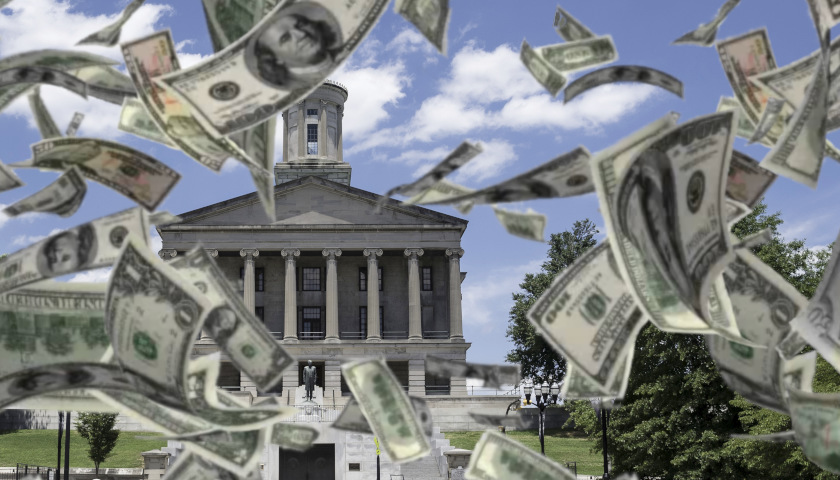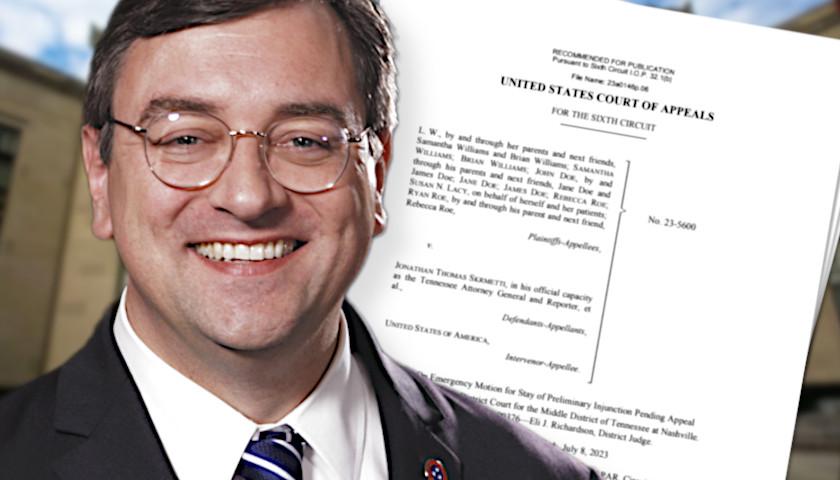The state has been ordered by a federal judge to pay $690,084 in attorneys’ fees and costs resulting from a successful First Amendment challenge to Tennessee’s unconstitutional Billboard Act.
Just over a year ago, the U. S. Court of Appeals for the Sixth Circuit issued an opinion in Thomas v. Bright (previously Thomas v. Schroer for the two most recent Tennessee Department of Transportation (TDOT commissioners) a case that goes back more than a dozen years. The Sixth Circuit court affirmed that Tennessee’s Billboard Regulation and Control Act of 1972 was unconstitutional based on its content-based regulation of free speech, The Tennessee Star reported.
Tennessee’s Billboard Act was enacted in response to Congress’ 1965 Federal Highway Beautification Act, which was intended to “protect the natural and scenic beauty along federal-aid highways by, among other things, controlling billboards in rural, scenic and agricultural areas,” according to Scenic America.
In Tennessee, anyone intending to post a sign along a roadway must apply to the TDOT for a permit, unless one of the Act’s exceptions applied to the sign.
In 2006, William Harold Thomas, Jr., an owner of more than 30 billboards in Tennessee, applied to TDOT for a permit to put up a billboard on a vacant lot for the purposes of commercial advertisement.
TDOT denied the permit application, but Thomas constructed the billboard and put up his sign anyway with non-commercial advertising.
TDOT removed the sign and went on to sue Thomas in state court, claiming he violated the state’s Billboard Act.
Thomas then “decided to fight the state’s unconstitutional laws governing what individuals can and cannot say on their own property,” according to Institute for Free Speech (IFS) who eventually represented Thomas.
IFS, a non-profit, is the nation’s largest organization dedicated solely to protecting the First Amendment by promoting and defending the right to freely speak, assemble, publish, and petition the government through strategic litigation, communication, activism, training, research and education, according to the organization’s website.
When the district court struck down Tennessee’s Billboard Act as unconstitutional under the First Amendment, TDOT appealed to the Sixth Circuit Court of Appeals. TDOT lost the appeal, with the circuit court upholding the district court ruling.
Additionally, the Sixth Circuit Court’s opinion said the trial court found “substantial evidence of selective and vindictive enforcement” against Thomas by TDOT.
The opinion referenced emails sent from TDOT employees who worked with Thomas’ competitor to “defeat” him as well as emails sent to Thomas’ advertising customers suggesting that his billboards were illegal and that associating with Thomas would reflect “negatively” on them.
Subsequent to the circuit court upholding the district court ruling, the state then petitioned the U.S. Supreme Court to review the case.
The state’s petition was denied, according to IFS, and the state must now pay attorneys’ fees and costs for each stage of the case.
IFS attorney, Owen Yeates, reacted to the federal judge’s order.
“These awards of attorney’s fees demonstrate the high cost of defending First Amendment freedoms and the importance of organizations that fight for them when individuals are unable to do so on their own. They also send a message to the states that they should not ignore their citizens’ rights.”
The specific fees and costs awarded by the U.S. District Court for the Western District of Tennessee to be paid by the state are as follows:
- $161,025 in attorney’s fees IFS incurred defending the district court’s decision before the Sixth Circuit Court of Appeals
- $98,030 in attorney’s fees IFS incurred opposing the state’s petition to the U.S. Supreme Court
- $83,323 in attorney’s fees and $1,534 in costs incurred by the law firm, Webb, Klase & Lemond, LLC, who represented Thomas before the district court
- $335,450 in attorney’s fees, including paralegal work, and $10,713.20 in costs incurred by attorneys George R. Fusner and Jonathan L. Miley who represented Thomas before the district court.
Early in the second legislative session of the 111th Tennessee General Assembly, House and Senate Transportation Committees heard testimony from billboard industry representatives as well as TDOT, as legislators considered how to rewrite the unconstitutional regulations within the Billboard Act, The Star reported.
In March, the respective committees took up the proposed legislation under HB 2255 and SB 2188, again hearing testimony from billboard industry representatives and TDOT. Amended legislation eventually passed in June as Public Chapter 706, after lawmakers returned from the COVID-19 recess.
– – –
Laura Baigert is a senior reporter at The Tennessee Star.








